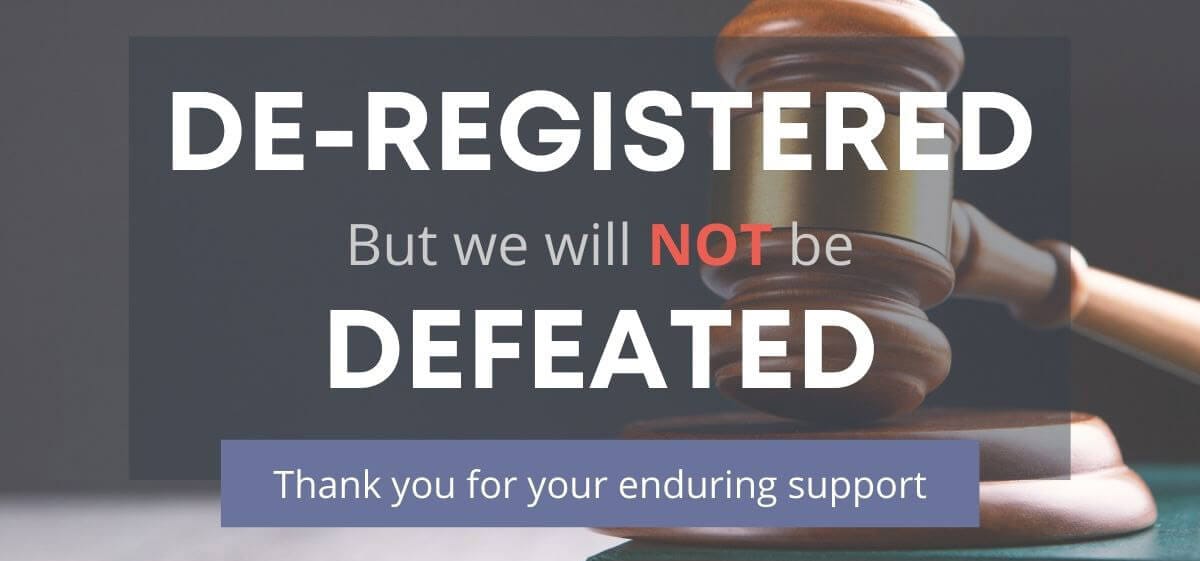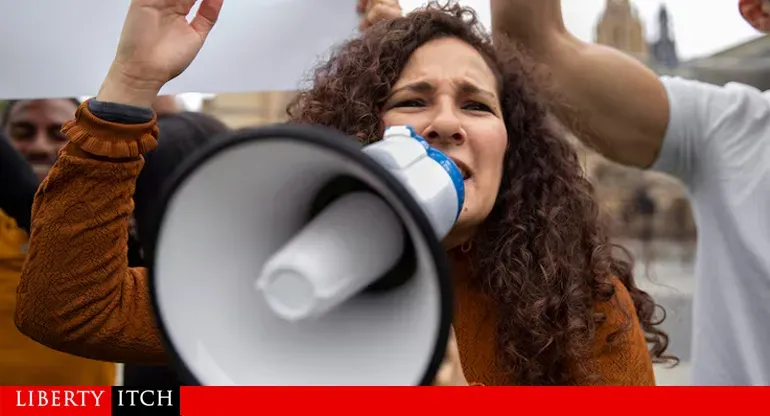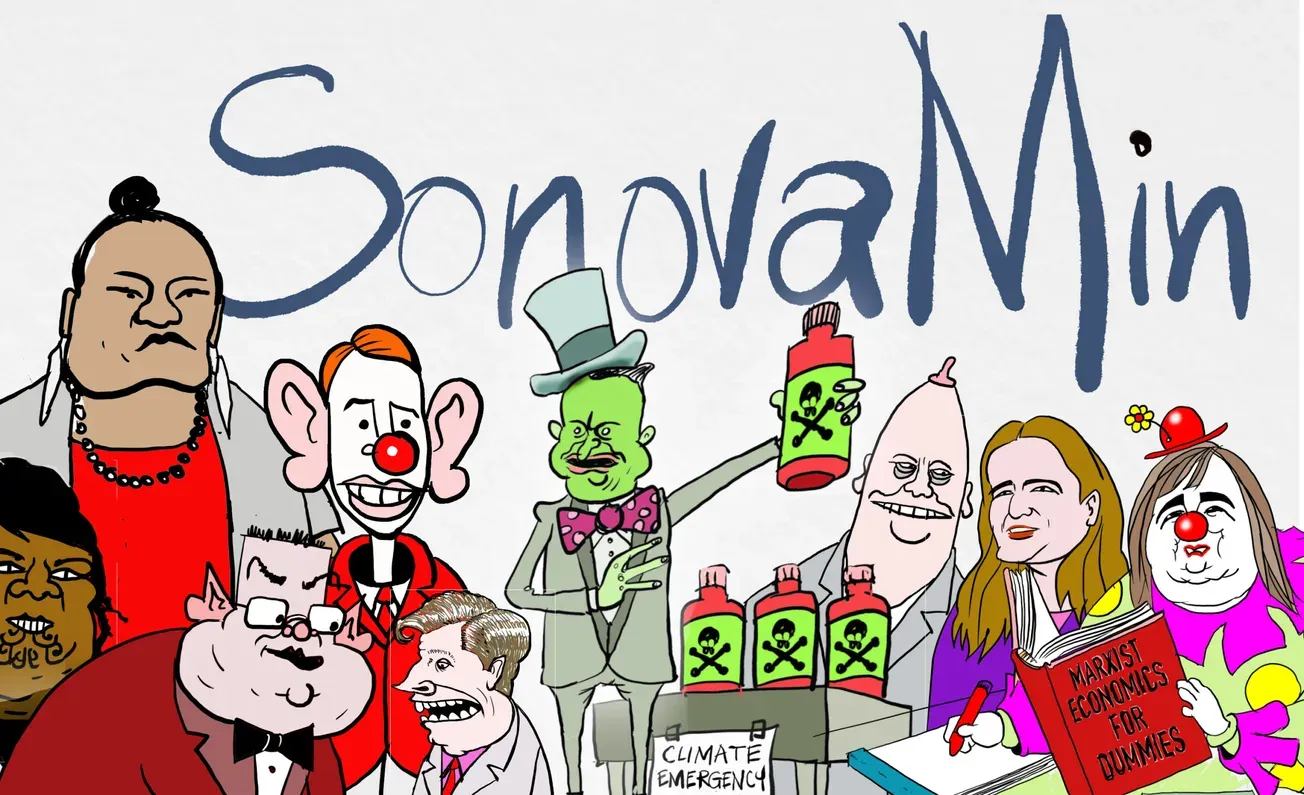Table of Contents
Thank you to the (literally) thousands of you who responded with words of encouragement Tuesday – our inbox and social media was exploding! – and with financial support.
We are truly humbled by the outpouring.
(Perhaps we should send flowers and morning tea to the Charities Board for all the work they’ve done over the past 10 years in helping raise our profile, support base, and financial position.)
How does this affect Family First?
It doesn’t, really. We will continue researching, educating and advocating in exactly the same way as we have done for the past 16 years. If anything, it means we no longer have to be cautious about the level of political advocacy we do. The gloves are off!

How about financially?
Losing our status as a registered charity means that donations made to Family First will no longer qualify for the Donation Rebate. That’s a disadvantage for our generous donors, but based on all the feedback yesterday, the loss of the Rebate will make no difference to most people when determining how much to invest in our work – and in fact, many of you have made new or increased commitments.
Can we appeal the decision?
No. We have reached the end of the appeal process. The only way the confusion and inconsistency around the determination of charitable status and the role of advocacy can be fixed is by Parliament. Interestingly enough, when Greenpeace was appealing their charitable status, both Labour and Greens committed to fixing this specific aspect of the law during the 2017 election (see below). But since Greenpeace have now been successful, they have suddenly lost interest. Are you surprised?

Aren’t their other charities who do advocacy?
Yes, examples include Helen Clark Foundation (campaigned to legalise cannabis), NZ Drug Foundation (campaigned to legalise cannabis), Child Poverty Action Group, Amnesty International New Zealand Inc, Save Animals From Exploitation (S.A.F.E.), National Council of Women, Rainbow Wellington, Royal Forest and Bird Protection Society of New Zealand Inc. READ THE FULL LIST
And we don’t believe these groups should be deregistered. We simply ask for a level playing field and equal treatment.
So what did the court actually say?
Before we show you what the Supreme Court said, let us remind you of the decision of the Court of Appeal only 12 months before:
COURT OF APPEAL (2020)
Some key statements made by the Court of Appeal in coming to their judgement which supported Family First being a charity:
“An examination of this material, set in the context of advancement of education and research, shows Family First’s clear purpose of stimulating a public debate and participating in public discourse on important social issues relevant to families…”
“Such research is valuable in promoting public knowledge about marriage and families and the many issues that affect the family. Public discussion and debate about such important issues is desirable to encourage the development of related policies and laws…”
“The end promoted by Family First is the support of marriage and family or core family values. This is an abstraction not dissimilar to the examples given in Greenpeace of world peace or nuclear disarmament. As already analysed, Family First seeks to educate and conduct research…”
“It would be curious if promotion of what the Board called the “traditional family” would cease to be of public benefit because there is a growing acceptance of other forms of stable family life, including within wh?nau and hap? relationships. And to be fair, Family First recognised the contribution non-traditional forms of family life can make…”
“We consider Family First’s engagement in the deliberations of the community on issues such as abortion, assisted death, anti-smacking laws, prostitution reform and censorship is properly characterised as part of its broader purpose of supporting marriage and family as being foundational to a strong and enduring society. Any attempt to label such engagement generally as cause advocacy of a political nature is not helpful.”
When the Court of Appeal ruled in our favour, the Government appealed to the Supreme Court.
SUPREME COURT (2022)
You can read the full (long) decision of the Supreme Court HERE. The most significant statement is where the Court rejects our view of marriage…
“We agree with the High Court Judge that an object of promoting the family as foundational to a stable society could be a charitable object. But we do not agree with the Court of Appeal majority that Family First’s advocacy of the role and importance of this particular version of the family and of marriage between a man and a woman is self-evidently beneficial in a charitable sense.” (para 91)
Oh dear. The ideology immediately comes through. They disagree with our view – a view that most of society held until about five minutes ago. What other views will become ‘uncharitable’ sometime soon? The definition of a woman?
In the Supreme Court’s media release which summarised the judgement (and the media quoted primarily from this – it is uncertain whether they read the whole judgement), it said:
“Family First believes that the traditional marriage (a permanent union of man and woman) is the best model for delivering the societal benefits associated with stable family life. It puts these principles into operation by, among other things, commissioning research reports, proposing legislative reforms aligning with its views, hosting conferences, and collating information on its website…”
“First’s purpose (exhibited by its trust deed and activities) crossed the line between education and advocacy. Its research reports lacked the balance that is required to further an educative purpose. By publishing research reports, hosting conferences, posting information on its website, and suggesting law reforms, it sought to advocate for the adoption of its views concerning the traditional family…”
There are two problems with these paragraphs.
All charities both educate and advocate. The Helen Clark Foundation, Drug Foundation, Child Poverty Action Group, Greenpeace, Amnesty International, Save Animals from Exploitation (SAFE), National Council of Women – we all advocate a viewpoint. Both the Helen Clark Foundation and the Drug Foundation tried to advocate for the legalisation of cannabis in the recent referendum. (Fortunately, they failed!) And we’re sure you know what Greenpeace’s opinion is on certain issues!
But secondly, the statement ignores the huge amount of research Family First has done on issues which have nothing to do with family structure e.g. the health harms of pornography, screentime, childcare, gender identity, fertility rates, family dinners, censorship, prostitution, child abuse, and many other issues.
The court also says:
“Supporting the family and marriage is not a purpose beneficial to the community and charitable by analogy to previously recognised purposes. Family First’s purpose is to advocate. Although Greenpeace opened the door for advocacy-based purposes in limited situations, Family First did not satisfy the criteria. It advocated a particular version of the family, being the traditional man-woman marriage. Its purposes are discriminatory — it advocates for measures to prefer the traditional family to the disadvantage of others…”
No – we simply present evidence that argues that family structure matters – and that marriage matters. In our view, the research is clear and overwhelming. If they disagree, simply put up the research that proves us wrong. Debate the issue. Don’t shut it down.
But what are the “limited situations” where advocacy is cool?
Here’s the telling bit:
“Family First’s engagement with issues such as abortion, assisted dying, prostitution and censorship were not subsets of its wider purpose of supporting marriage and family. They are free-standing political objects about which there are differing views in society. For such issues, it is not possible for the Court to determine whether the views promoted are publicly beneficial or otherwise charitable. This differs from advocacy for ends like human rights and protection of the environment which Greenpeace held were themselves charitable ends. Family First’s advocacy on the above issues was not ancillary to its expressed purpose of supporting marriage and family…”
This is the key point to understand. The court is saying that the religions of ‘human rights’ (including sexuality and gender) and ‘environmentalism’ are acceptable things to advocate for, but to present and use decades of research proving that family formation and structure matters is unacceptable and apparently discriminatory.
Finally, one of the Justices (Williams J) was very critical of us – although it’s important to note that this view was not shared by the other four Justices. He said:
“To help guide future decision-making, Williams J suggested that “selflessness” can operate as a touchstone. Substantially self-regarding purposes should not, in principle, be charitable. Using that approach, Williams J agreed Family First did not qualify as an educational charity. One-sided promotion of personally held views detracts from the cohesiveness of our pluralistic society and disempowers the receiver by failing fairly to inform them of alternative viewpoints on the subject. Family First’s promotion is self-referential; it is not about community.”
With due respect, this is confused thinking. There is no “selfishness” in doing research and advocacy to strengthen families, encourage marriage, respect the sanctity of life, and protect freedom. As already stated, every charity is promoting their cause – their view. On this measure, every charity should be deregistered if they have a view and promote that view. “Pluralistic society” is a buzzword with no specific meaning, but what it does do is simply reinforce that there will be differing views that deserve debate.
“Advocating for controversial ideas or causes may be charitable where the group addresses the issue in a balanced way. Honesty and respect in debate is not self-referential. But Family First’s advocacy is not fair, balanced or respectful, so its advocacy is not charitable…”
We completely disagree. In fact, we challenge Williams J to give evidence of his claims. He may not agree with our opinion – but his character assassination is highly subjective, and is itself “not fair, balanced or respectful” in our opinion.
We know and trust that you as our supporters would call us out immediately if we were guilty of any of these accusations.
Our research reports have never been proved to be factually incorrect. Opponents simply disagree with them – which they’re entitled to do. We would argue that most of the reports out of the Helen Clark Foundation and the Drug Foundation haven’t been fair or balanced either!
Click here to hear the Newstalk ZB interview.
As we mentioned Tuesday, the real question is whether the Government will pursue other charities who operate in a similar fashion and do political advocacy – and who Family First have possibly engaged with during social debates such as cannabis legalisation, but are from the left-wing side of political discourse. Will they now be targeted? We believe they won’t. The state approves of their views.
This decision reveals just how far the state is overreaching their control and power to attempt to shut down free speech and certain points of view that it doesn’t like.
Family First will not be silenced and will continue to represent and be a powerful voice for families, faith and freedom, and advocate on behalf of the thousands of families who support us.
Kind regards.

Bob McCoskrie
Chief Executive









